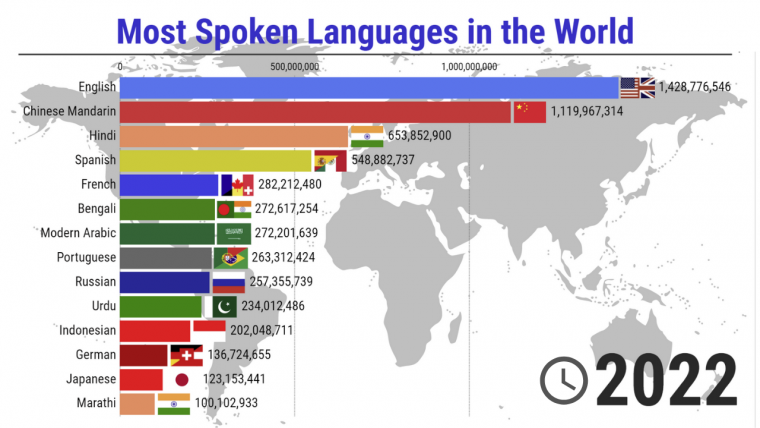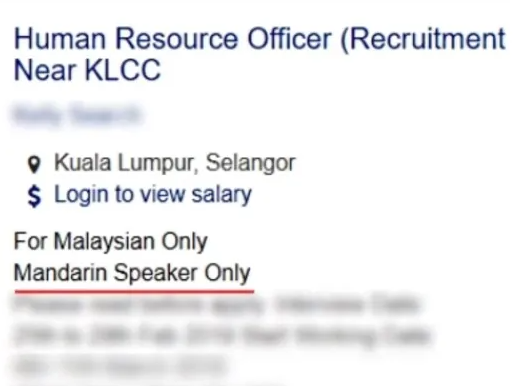
Let me put it this way: out of all my family members, I am the only one who can’t speak Chinese. My uncles, aunties and cousins… all of them grew up speaking and learning the language.
It definitely put a bit of a barrier between us. I can’t tell you the number of times I’d just sit quietly at dinner while they all chatted to each other. Or how I couldn’t get their jokes and arguments unless someone explained it to me. Whether they meant to or not, I couldn’t help feeling left out in many ways.
So when I was about 17, I asked my mother if she could help me sign up for Mandarin classes.
“I want to be able to talk with our relatives at our next CNY gathering,” I reasoned.
“Of course!” she readily agreed. “Your auntie is actually teaching the language now. I’ll ask if we can put you into her class.”
“Why don’t you want to learn anymore?”

At first I was super excited. Finally, I would be able to learn to speak Chinese properly! And thanks to the power of nepotism, we wouldn’t even have to pay too much for it!
That enthusiasm lasted up until I learned that my auntie was working at a kindergarten. My classmates were a bunch of four and five year olds who were already speaking and reading the language better than me.
I stayed in that class for a few weeks, awkwardly scrunched into one of those tiny plastic chairs and trying not to feel disheartened as I stumbled through the Chinese version of “See Spot Run”.
Needless to say, my interest in the class didn’t last very long after that. The worst part is how my mother seemed genuinely bewildered when I told her I didn’t want to go anymore.
Can You Still Learn Mandarin After You’ve Grown Up?

Shah Farid Rashid, the founder of Fasih Mandarin, knows from personal experience that you’re never too old to learn a new language.
“I speak three languages: Bahasa, English and Mandarin,” he said. “I learned and spoke Bahasa and English since childhood, but for Mandarin I started learning when I was about… 18 years old. Right after SPM.”
While many of his classmates chose to further their studies in subjects such as medicine and engineering, Rashid decided to pursue a Bachelor’s degree in Chinese Language and Literature in Beijing, China. It was an interesting choice given that he didn’t even speak a speck of Mandarin at the time.
“Among all the scholarship opportunities that they offered to us, there was one programme on Chinese Literature that really caught my attention because no one had ever mentioned it before. Despite knowing that it was difficult, the thought of learning a new language was very appealing to me,” he said.
Fortunately, (unlike me) Rashid wasn’t put into a kindergarten class.
“In Chinese Literature, first you learn about the language. Then it’s about the culture, the history, the poems… all of these things I learned during my five years in China.”
Learning A New Language From Scratch
“There were so many challenges I faced,” said Rashid. “Especially from someone with zero background [in the language]. I had trouble ordering food, moving around, buying stuff, taking public transportation… I had to rely on sign language so often!”
However, he didn’t let these challenges drag him down. Instead, they helped to motivate him. He was driven to learn the language faster. To improve his Mandarin skills, he made Chinese friends and also learned the local slang. He picked up part-time jobs where he’d have to talk to people.
And in the end, all that hard work had paid off.
Why Aren’t More Malaysians Learning Chinese?

As a non-Chinese, learning Mandarin has changed Rashid’s life in many ways — especially after returning home to Malaysia.
“During my summer break back in 2010, I came back to Malaysia and realised that I could communicate better with people that I previously wasn’t able to speak properly with.”
“There was one situation where I helped a group of Chinese tourists in KL airport… I was very excited to put my Mandarin skills to good use. It was really so fulfilling to me.”
After graduating, he got a job teaching Mandarin at local universities. However, while he was initially enthusiastic about spreading his knowledge, he soon began to feel frustrated with our local education system.
“I noticed that the students were not enjoying the class like I did in Beijing,” he said, “They all just want to pass the exam and graduate on time. I felt that something needed to change with the teaching materials. But because I was so young, nobody wanted to listen to me or take my suggestions seriously.”
Over time, Rashid became more and more concerned about how his students didn’t seem to be benefiting from his classes. After months of deliberation, he finally decided to follow his beliefs and created a company to teach Mandarin in a better way.
What Makes Fasih Mandarin So Different?

Rashid founded Fasih Mandarin to teach Mandarin to non-native speakers. Their approach aims to prove that Mandarin is not actually that complex. With the correct method and right approach, anyone can learn the language.
“We opened our first intake in December 2016 in a very tiny classroom,” said Rashid. “But even back than we were surprised and overwhelmed with so many enquiries. In a very short time, we managed to fill up a class of 20. It was only the first intake and we already had a waiting list!”
But what made this class in particular so popular? What made so many people — people who’d never spoken Mandarin before — so interested in signing up?
To put it simply — they make learning fun.
“When I was studying in Beijing, it was really fun and interactive. The teaching methods that Fasih Mandarin is applying is actually from when I was studying in China, just modified to fit the Malaysian context.
“Our trainers mostly came from the same background as me — non-native speakers who struggled their way to become fluent in Mandarin, so they have a lot to share and can relate with our students. I think that’s our specialty: we make all the difficulties very easy to understand and pronounce.“
By choosing teachers who aren’t native speakers, Fasih Mandarin hopes to inspire their students and motivate them to move forward even if they are struggling to learn.
“They think ‘if my teacher can do that, so can I,” said Rashid.
Learning A New Language Can Change Your Life
“Why should I learn Mandarin?” you might ask. “None of my friends and family speak it, so why bother?”
The truth is that learning a new language can open up new doors and opportunities that you might never even have imagined. In this day and age, knowing Mandarin can make a big difference in both your private and professional lives.
“After graduating, I managed to secure a full time job right away,” Rashid pointed out. “Employers from various industries were actively looking for me because they knew I can speak Mandarin. Meanwhile, a lot of my high school friends went to so many interviews, but they were still struggling to find a job.”
If you’re the type of person who needs to measure the pros and cons, here’s a few other reasons why learning Mandarin can be helpful:
1) It’s one of the most widely spoken languages in the world

It is estimated that there are over 1 billion Mandarin speakers in the world today!
Even if none of your friends or family can speak it, Mandarin is a widely known language that will help you communicate better with so many new people both inside and outside Malaysia.
2) It opens up new job opportunities

If you’ve ever tried to find a job in Malaysia, you’ll know how many ads include lines like “Must speak Mandarin”, “Chinese speakers only”, and a lot more that are along those lines.
Well, guess what? Once you learn Mandarin, all those jobs suddenly become open to you too! And even if you’ve already got a job, learning a new language is bound to help your career as you can talk to more potential customers and clients.
3) It can boost your salary

Did you know that learning an additional language can boost your earnings by between 2% to 5%?
Learning Mandarin in particular is a big advantage here in Malaysia. Aside from the fact that many local customers know Mandarin, any company that’s doing business with China will naturally be willing to pay more for Mandarin speakers.
“New Language, New Life”

“I came from the B40 community myself, and I had so many limitations during my childhood,” said Rashid. “To help my family, I had to start taking part time jobs from as young as nine years old.
“My life was changed by two things: my scholarship and mastering Mandarin. So if these two things can change my future, I believe that it can also be the same for others.”
One of Rashid’s dreams is to help spread Mandarin skills among Malaysia’s B40 group so that they can enjoy the same opportunities that he did.
As part of this process, Fasih Mandarin announced the “New Language, New Life” campaign in early 2022. It offers a 50% scholarship to qualified individuals with a household income of below RM2,500 a month.
Applications are open throughout the year through Google Form.
As Malaysians, we are blessed to live in a country that has so many different languages and cultures. However, there are many of those who would use our differences to divide us. By learning more about each other’s languages and way of life, we can help to preserve our harmony and create a safer, more united nation.
Learn more about how important language is for Malaysians by checking out:
“Kenapa Speaking?” Cakap Melayu Doesn’t Make You More Malaysian Than Me









